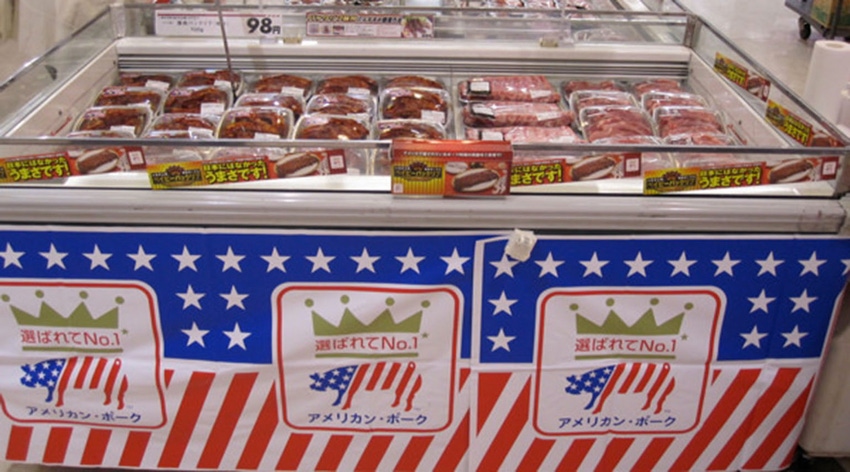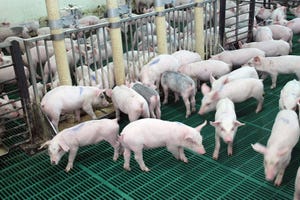Legislative Watch: KORUS details ironed out; Trump requests Trade Promotion Authority extension; coalition says retaliation will hurt rural; ag research needs to be increased.

The United States and South Korea reached an agreement that modifies the six-year old United States-Korea Free Trade Agreement by addressing the administration’s concerns regarding autos. The agreement will allow the United States to sell more autos and auto parts while sparing South Korea the steel tariffs announced by the United States last week. There are no changes in the agreement that will affect agriculture tariffs.
KORUS has been a significant trade agreement for U.S. agriculture. South Korea is the sixth largest market for U.S. agriculture. The United States exported $6.9 billion in agricultural products in 2017. South Korea is the second largest market for U.S. beef, third for corn, fifth for pork and third for fresh fruit.
Dan Halstrom, president of the U.S. Meat Export Federation, says, “The announcement of a successfully revised KORUS trade agreement comes as excellent news for the U.S. beef and pork industries because it helps ensure that we will continue to be able to serve the growing South Korean market and a critically important customer base. The United States is the largest supplier of beef to Korea and trails only the European Union as the second-largest pork supplier. U.S. red meat exports to Korea set a record last year of $1.7 billion, up 19% year-over-year and up 69% from 2012.”
Under the agreement:
• Autos — The United States will be able to double to 50,000 the number of autos each U.S. automaker can sell to South Korea without meeting local safety standards. In 2016, the United States exported 16,400 passenger vehicles.
• Trucks — South Korea will lift the cap on imports of U.S. trucks and the United States will extend its 25% tariff on imported pickup-trucks until 2041. The tariff was originally set to expire in 2021.
• Auto parts — South Korea will eliminate various environmental and “country-of-origin” labeling regulations on U.S. imports that will make it easier to sell American-made auto parts.
• Steel — South Korea will limit its steel exports to the United States to approximately 2.7 million tons per year which is about 70% of current exports. In exchange the United States will not impose the 25% tariff announced last week.
• Aluminum — The 10% tariff on aluminum will remain.
Trump asks for TPA extension
President Trump is requesting a three-year extension of Trade Promotion Authority. This will give him authority to negotiate free trade agreements that he can then submit to Congress under fast track approval procedures.
Trump says, “I hope my administration can continue to work with the Congress to pursue new and better trade deals for America’s workers, farmers, ranchers and businesses. Extension of trade authorities procedures is essential to fulfill that task and to demonstrate to our trading partners that my administration and the Congress share a common goal when it comes to trade.”
Trade Promotion Authority was last passed by Congress in 2015.
Coalition says retaliation hurts rural families
A coalition of national and state agricultural associations and companies launched an initiative, “Retaliation Hurts Rural Families,” to oppose President Trump’s decision to impose tariffs on steel and aluminum imports, as well as goods from China.
The goal is to educate administration officials and Congressional members how retaliatory tariffs could result in job losses and decreased market access for U.S. farm products.
Casey Guernsey of the coalition says, “The reality is that the Trump administration’s tariffs on imported steel and aluminum would result in retaliation from other nations eliminating hundreds of thousands of jobs as evidenced by a recent study. Already, the European Union has produced a list of targets for retaliation meaning billions of import taxes on American products, which directly and negatively impact various agricultural commodities. This is not a hypothetical discussion, it is real job losses and real lack of market access, which will hurt rural families and the agricultural industry.”
The initiative is sponsored by Americans for Farmers and Families coalition. Members of the coalition include the American Farm Bureau Federation, American Soybean Association, Animal Health Institute, National Association of Wheat Growers, National Corn Growers Association, National Pork Producers Council and National Turkey Federation.
Group asks for increase in ag research
The Friends of the Agricultural Research Service Coalition is urging Congress to reject the administration’s proposed cuts for agricultural research and provide $1.35 billion in discretionary funding for ARS for fiscal year 2019. The administration’s fiscal year ’19 budget also proposes closing 20 ARS facilities located throughout the United States.
The coalition in a letter to Congressional leaders says the U.S.’s “premier agricultural research programs are struggling to keep pace with innovation, emerging challenges and global competition, while our national research facilities continue to defer necessary maintenance.” They also say the proposed ARS funding cuts would “cause job loss across the country, undermine the health of our children and elderly and threaten our nation’s competitiveness as a leader in agricultural research and innovation.”
Those signing the letter include American Seed Trade Association, American Society of Animal Sciences, National Association for the Advancement of Animal Science, National Association of State Departments of Agriculture, National Association of Wheat Growers, National Cattlemen’s Beef Association and North American Meat Institute.
About the Author(s)
You May Also Like



